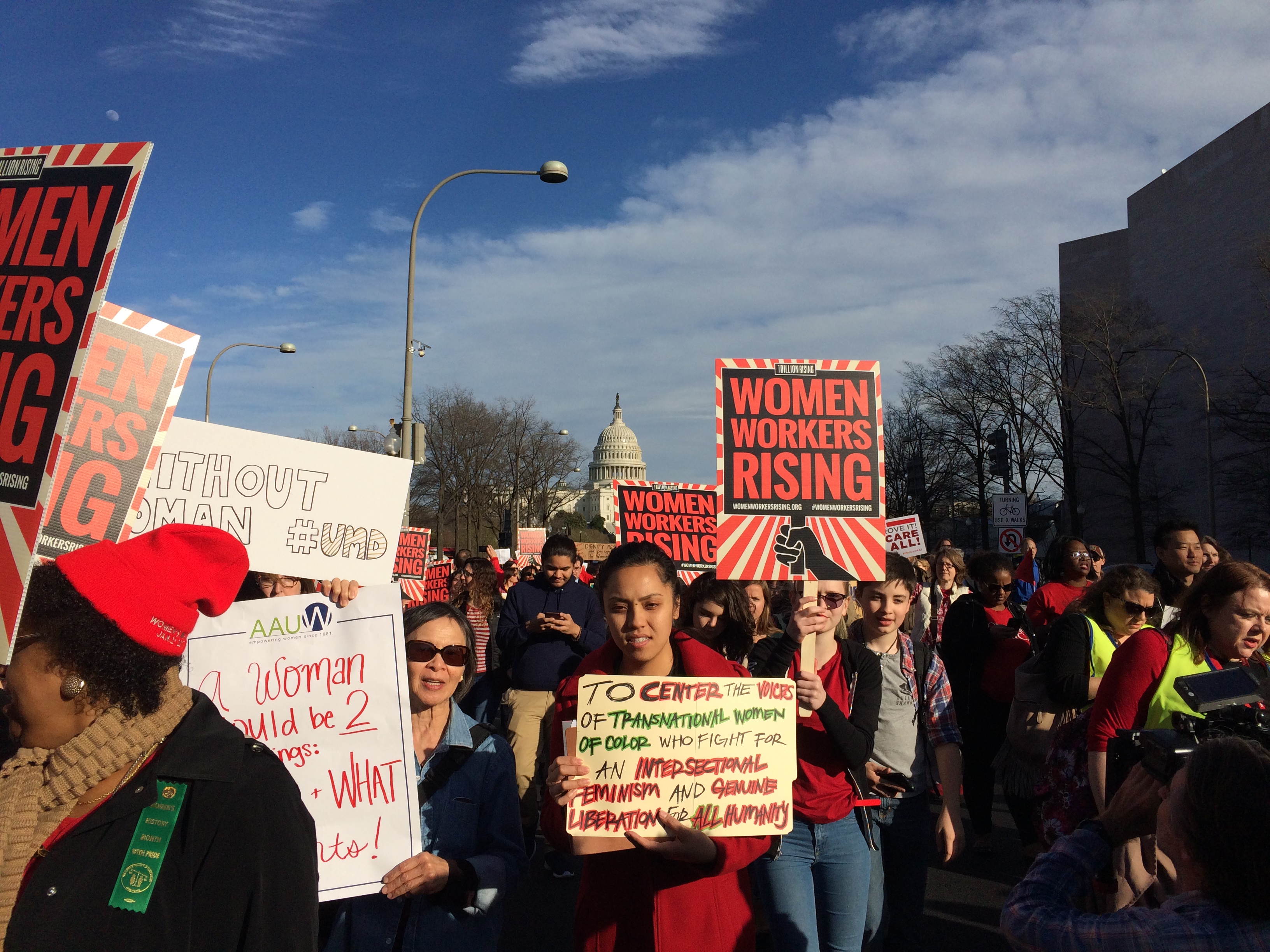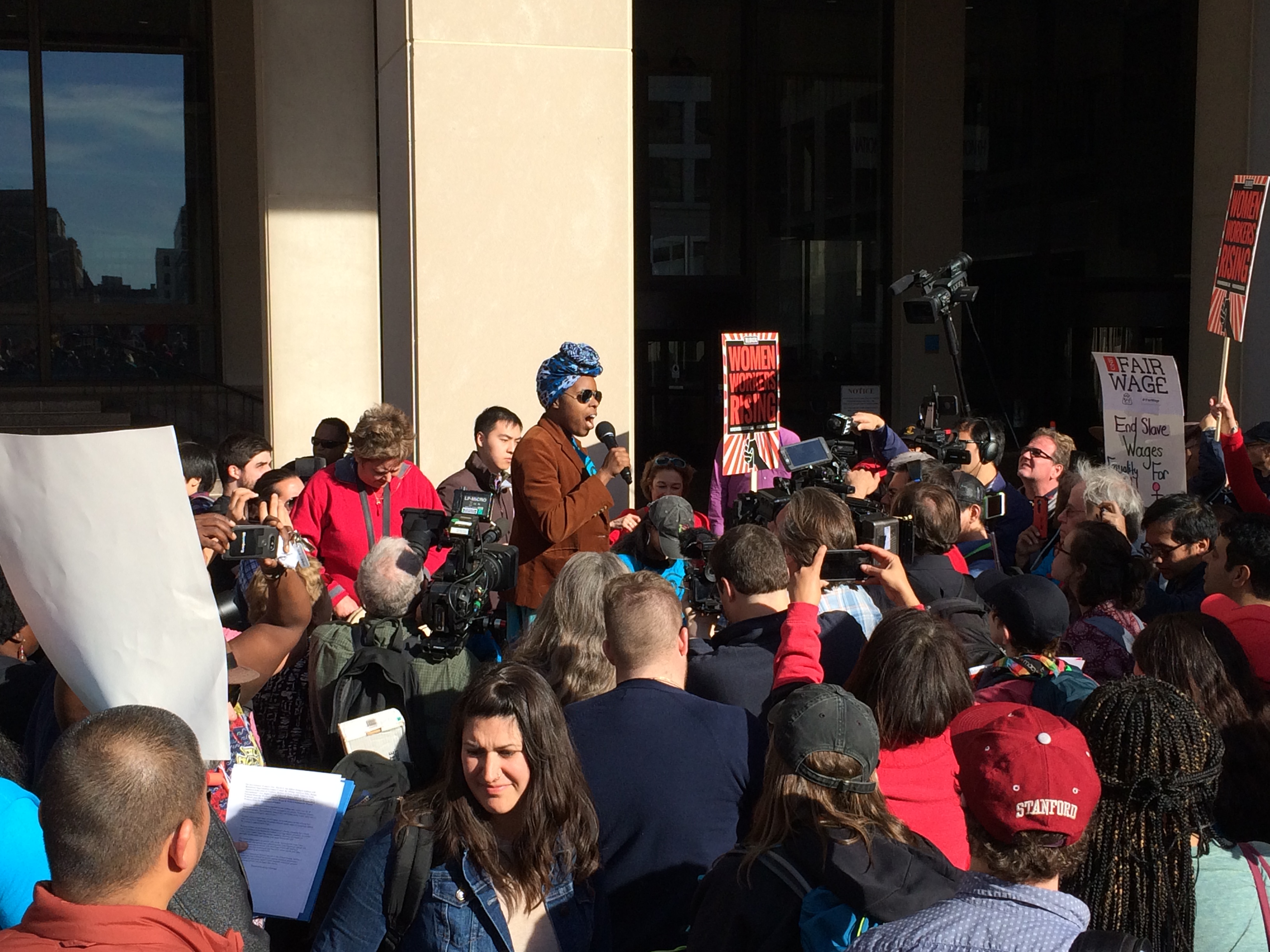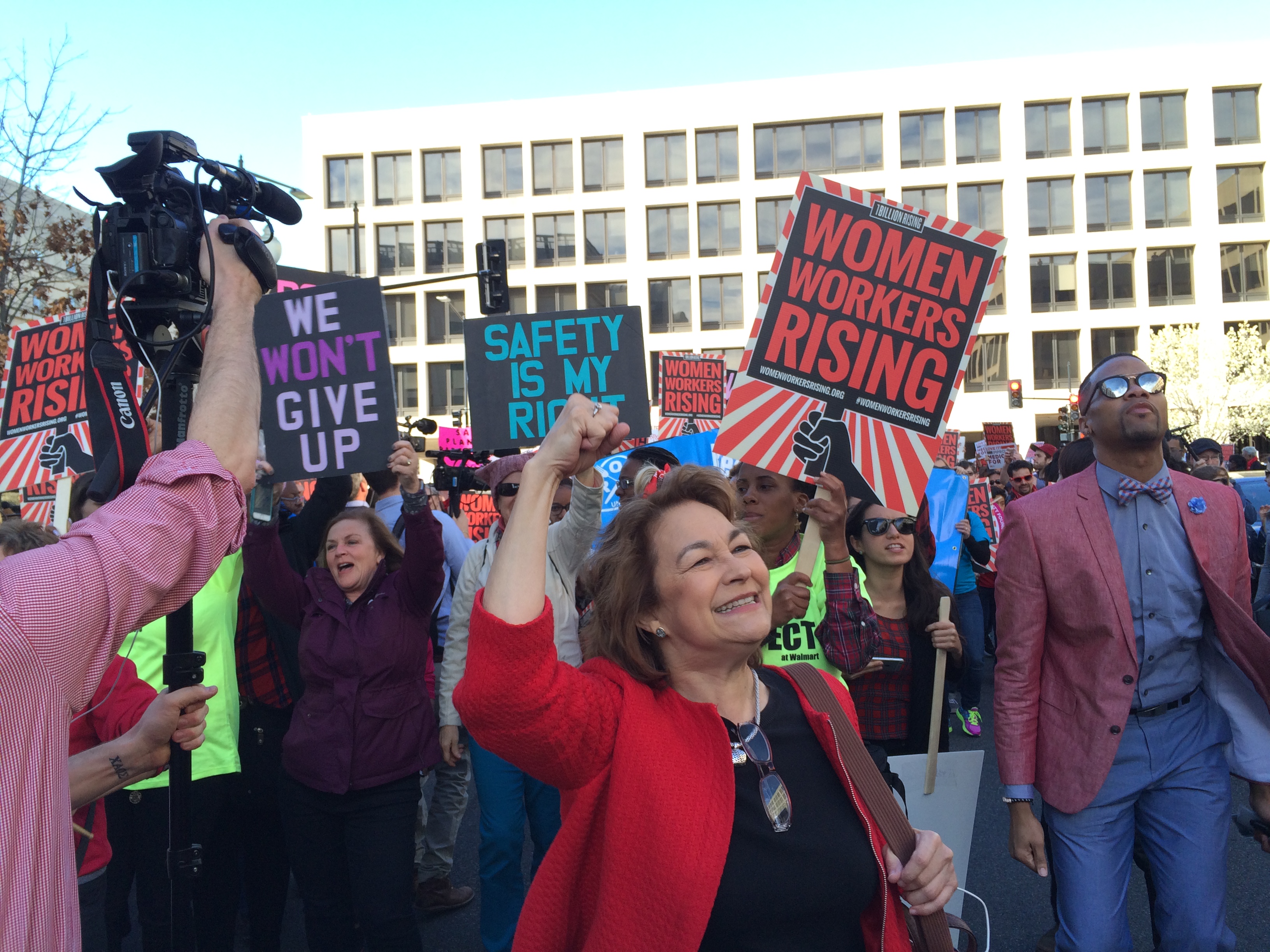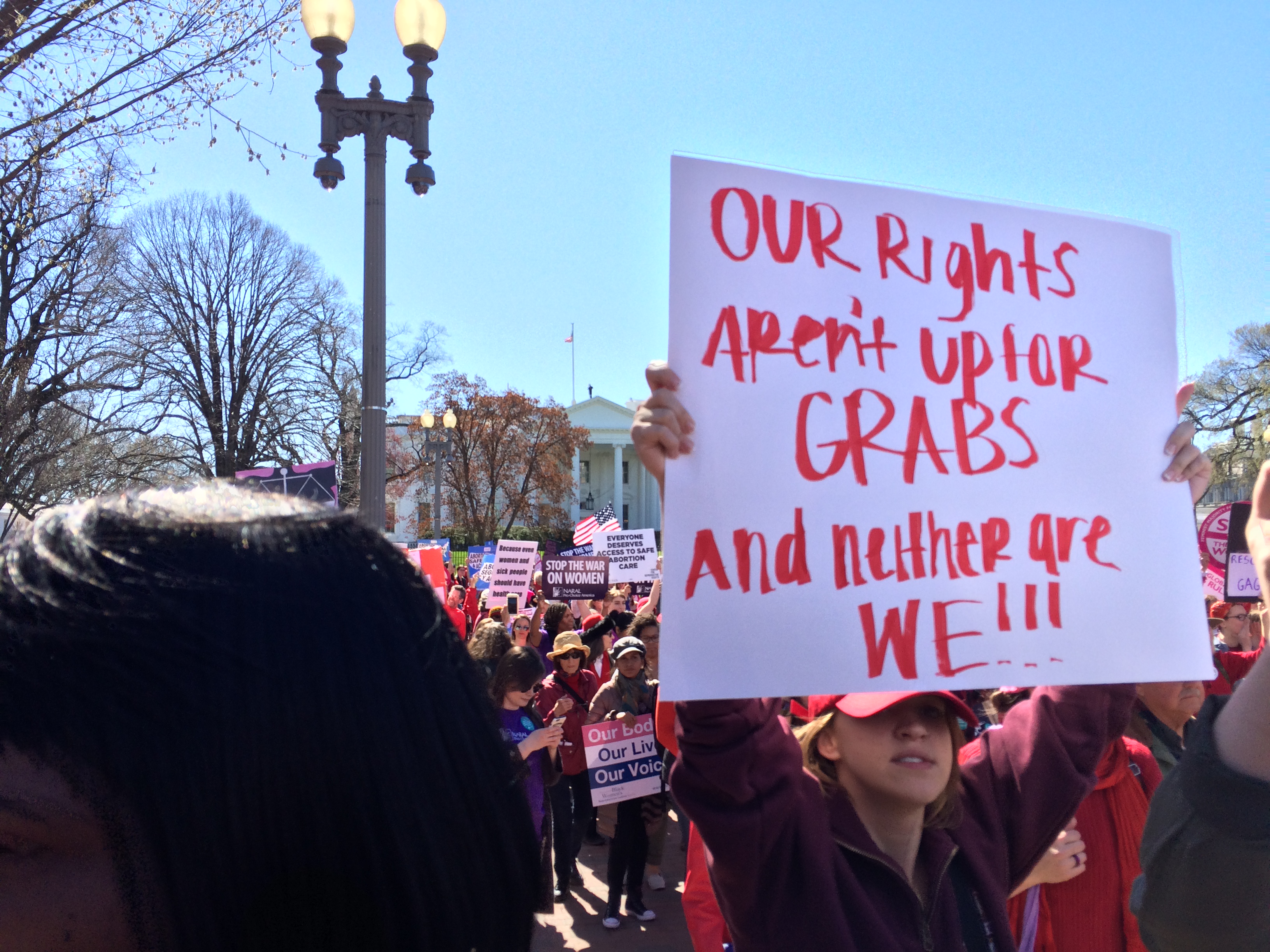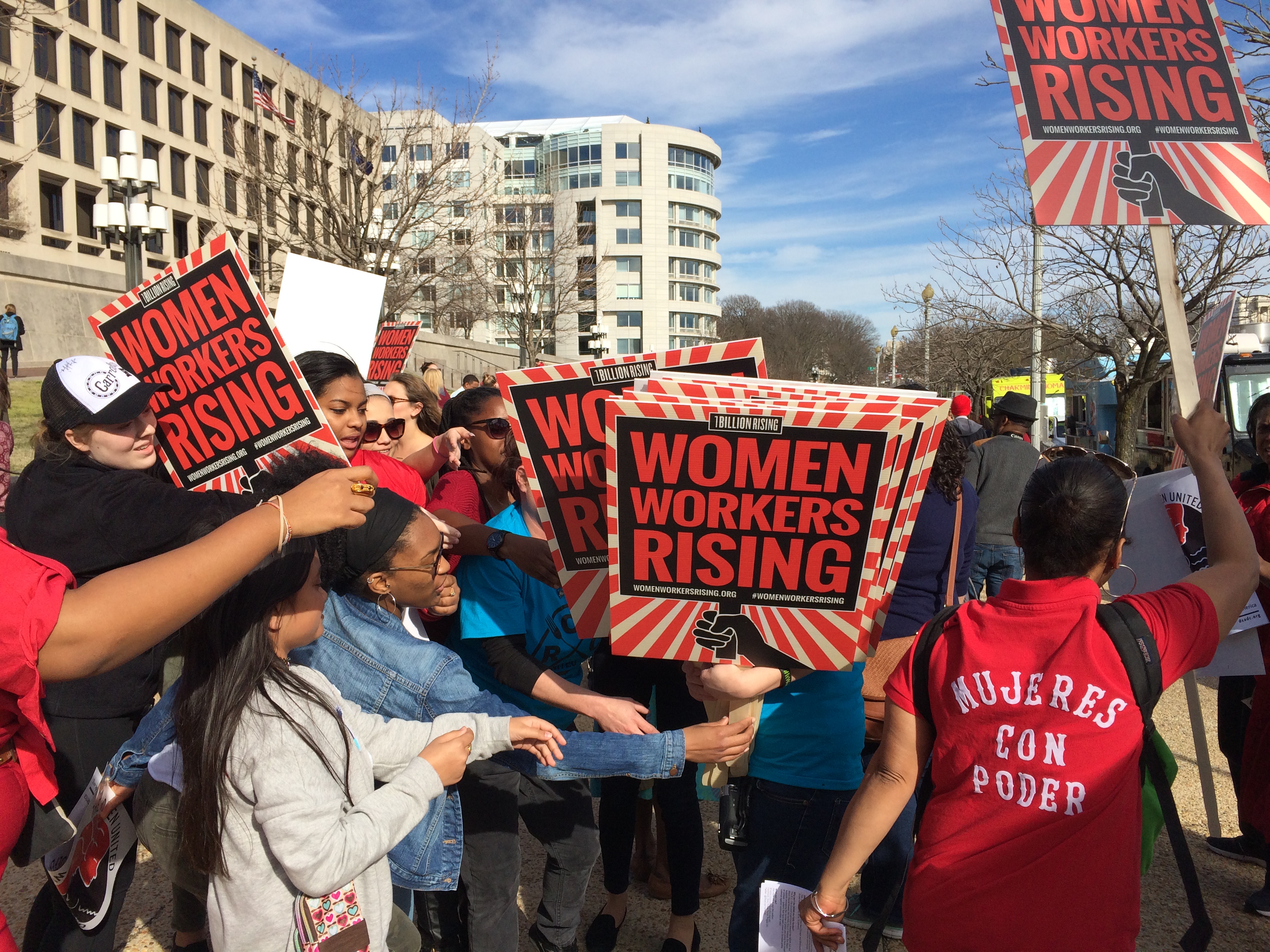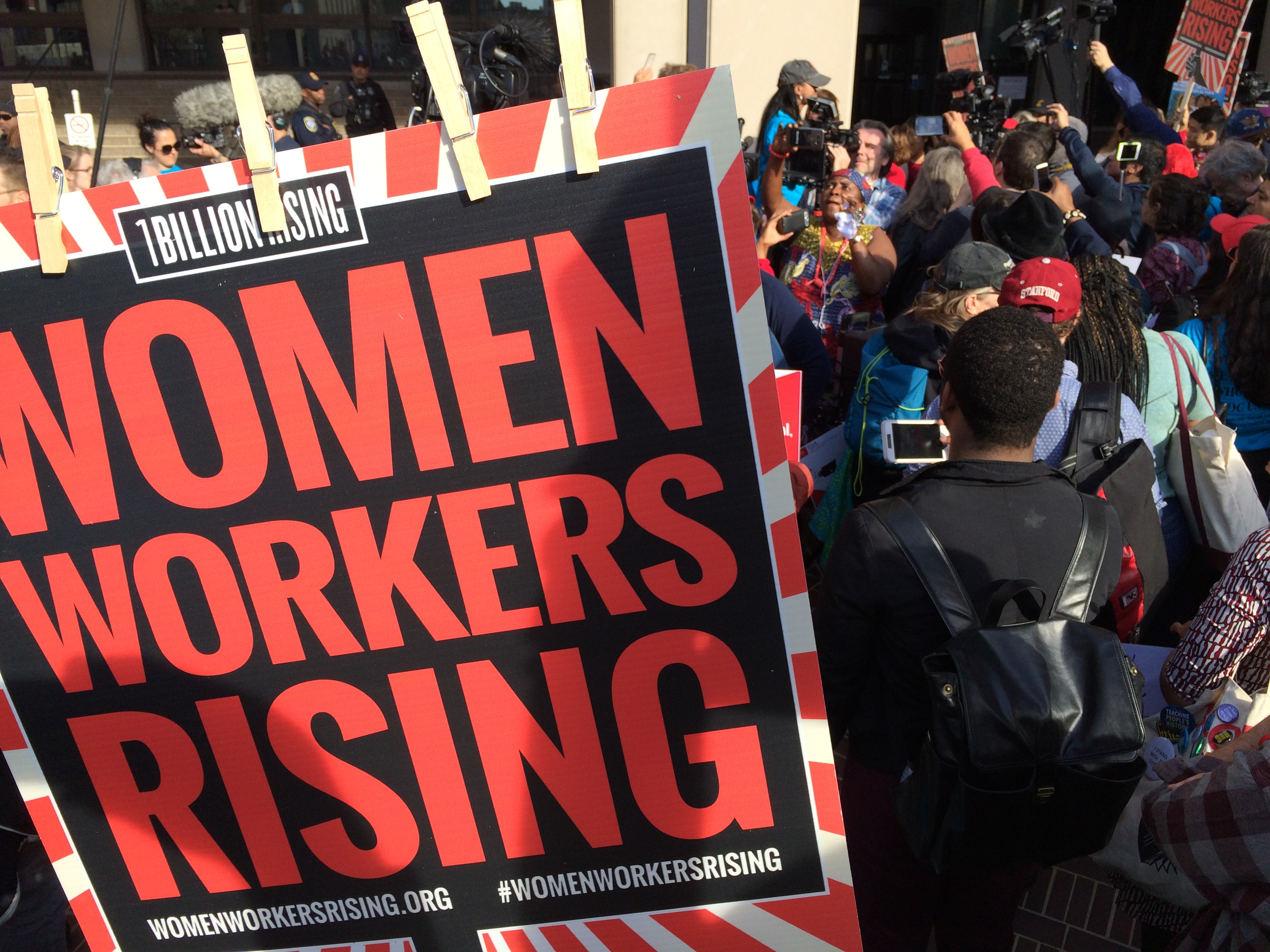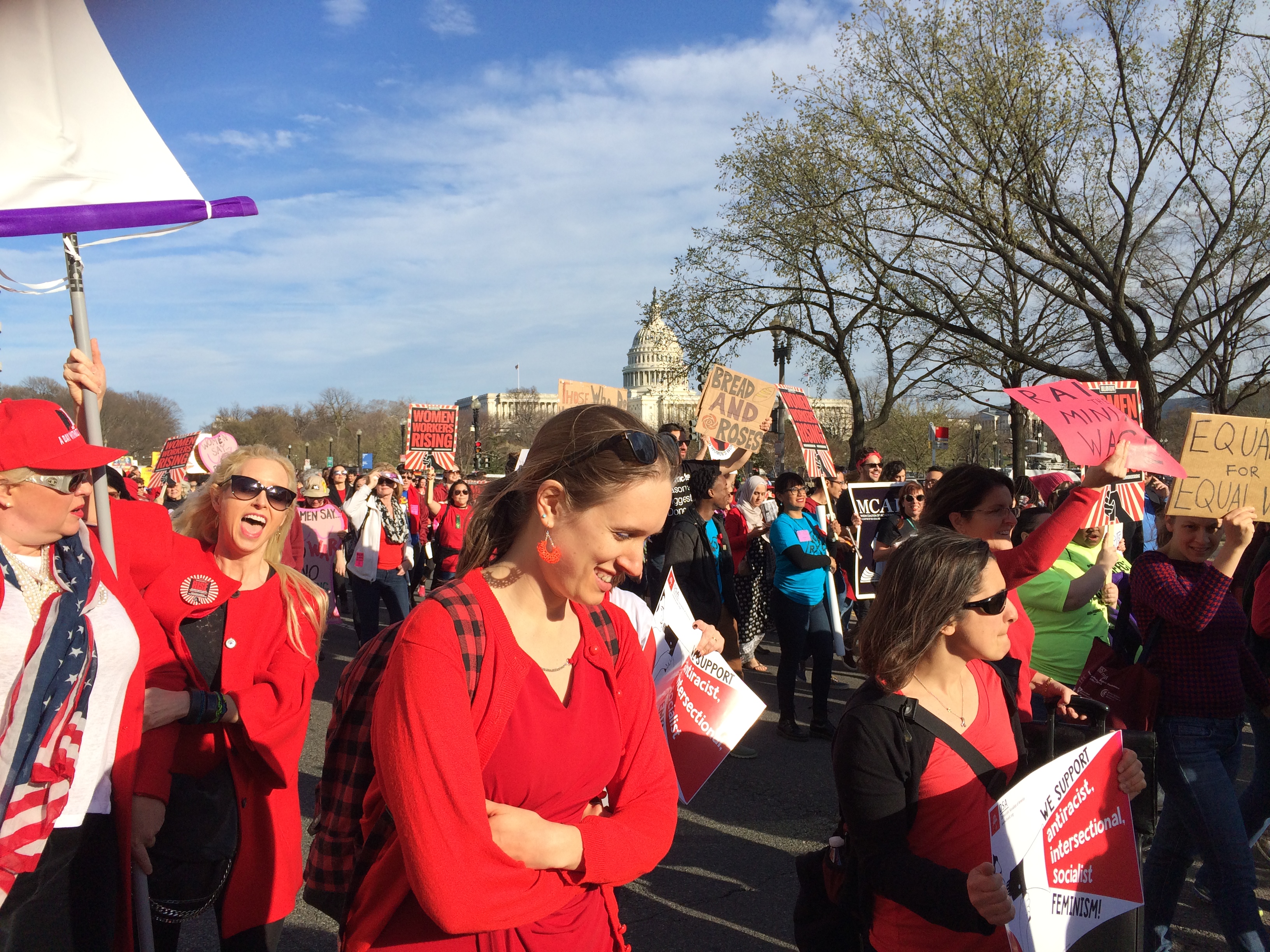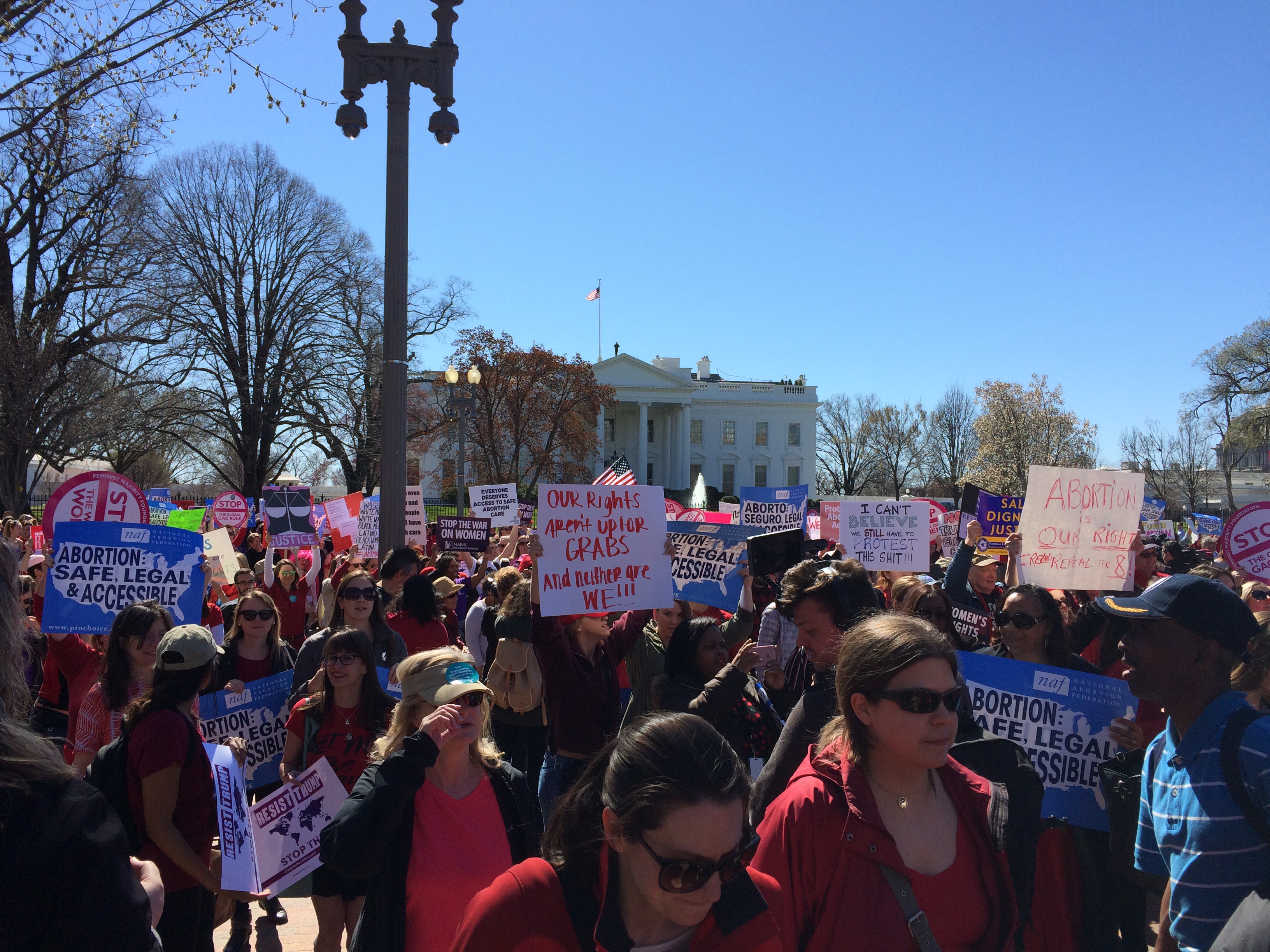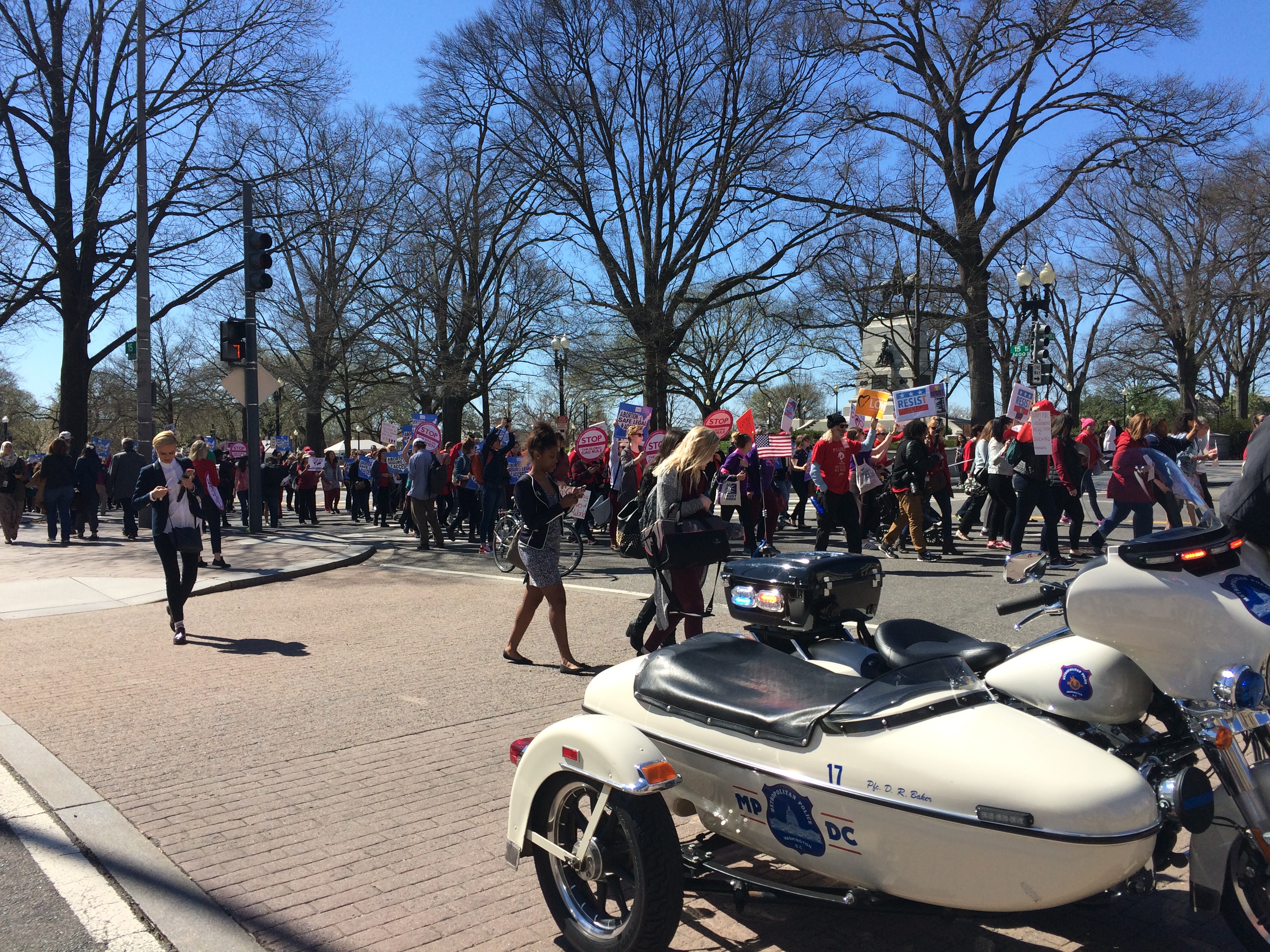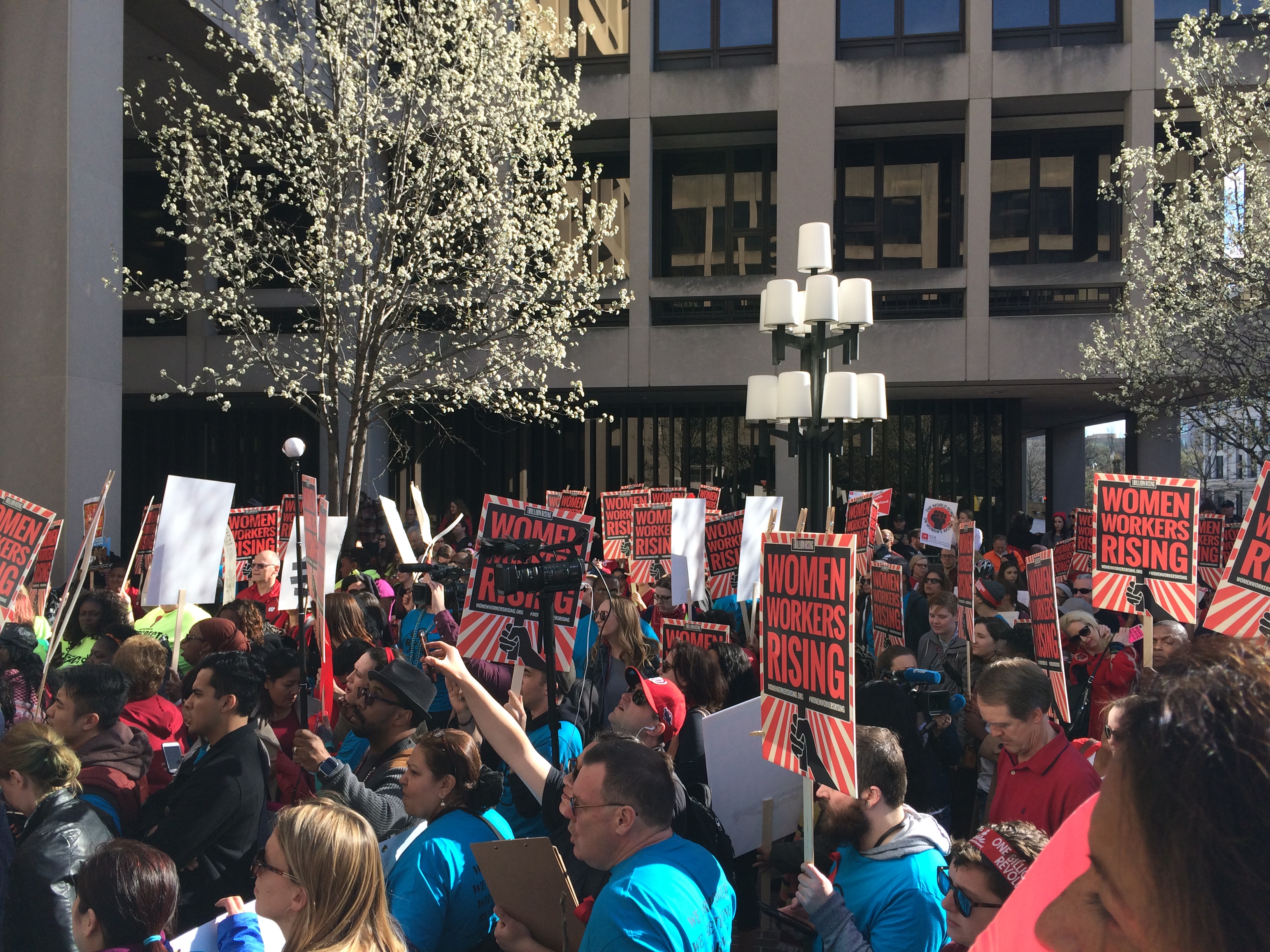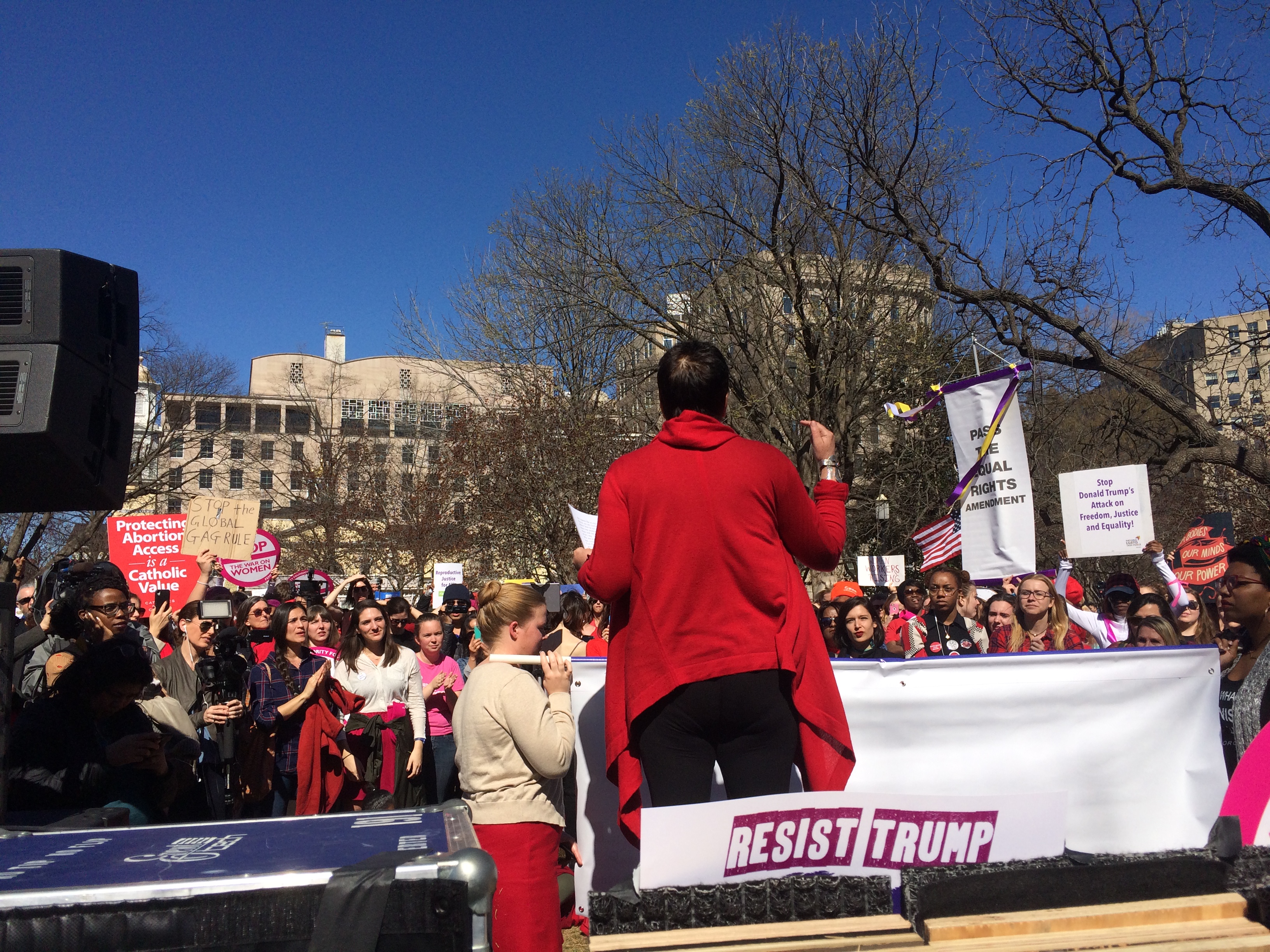Women in cities across the country skipped work to protest Wednesday against gender discrimination in the workplace.
A Day Without a Woman protest aimed at highlighting how important women are to the workforce. Participants argued throughout the day that women are mistreated and undervalued at work. They pointed to the gender wage gap, and other forms of inequality women face.
The national work stoppage is the latest in a series of protests that have occurred since the election. President Donald Trump has been denounced by critics as a sexist who will undermine women’s rights. Washington D.C. protesters marched across the city and held several rallies to mark the day.
“It’s a day to recognize women who contribute significantly to the economy, and this country really can’t exist without us,” protester Mary Miramontes told InsideSources. “So a day without work is to make people stop and take notice how vital we are. I personally think it’s not enough, but it’s a symbol.”
Washington D.C. protesters didn’t seem to have a notable impact on local businesses. Restaurants and stores were still open with women working alongside men. The capital city, however, wasn’t alone as protesters marched and rallied in dozens of cities across the country.
“I’m out here today because I think the intersections of gender and work are important,” protester Yvonne Slosarski told InsideSources. “I’m here because I think a lot of women workers don’t get the type of credit they deserve, and I think its a great day to take a stand on worker rights and how they intersect with women’s rights.”
The demonstration was to highlight how valuable women are to the workforce by showing what would happen is they weren’t there. Many also expressed opposition to the president. They argued his rhetoric was demeaning to women, and his views on equal rights is alarming.
“I have not been heartened by the actions they’ve taken since inauguration,” protester Maggie Smith told InsideSources. “I was trying to take the attitude of let’s wait and see and now we’re seeing that they’re living up to our worst expectations. I’m not going to lie, I’m fearful for our country.”
The protesters highlighted a range of issues which were critical to them. Many were concerned with the gender pay gap. Some studies have shown woman get paid roughly 79 cents for every dollar a man earns. Experts elsewhere have countered that other factors might be to blame, like job type.
“The pay gap is really important,” Smith said. “I think raising awareness for that, I think it’s one of those issues that’s not seen and not heard on a daily basis, and people forget about it. So it’s important to remind people that we still have a ways to go.”
Smith adds that how women are valued and treated in the workplace is also important. Some protesters came out to support women’s rights beyond just work. They expressed concern that reproductive rights are in danger under the new administration.
“Really it’s the right for reproductive justice,” protester Tess Thapalyal told InsideSources. “I think it’s at the core of the women’s rights movement. It’s at the core of women’s equality, especially economic equality. So when I heard about the global gag I knew I had to make sure my voice was heard in opposition.”
The global gag order refers to an executive order signed by the president early in his term. It bans foreign nongovernmental organizations from counseling health clients about abortion if they receive aid from the U.S. government. Some fear it’s a sign of what’s to come.
“We’re just here to resist the global gag rule and try to voice our concerns that this is not just an at home concern, it’s global,” protester Samantha Harrison told InsideSources. “It’s not only affecting women here, it’s affecting women worldwide. It’s disheartening to see the way the country is going right now.”
Some protesters believe the problems facing society goes beyond just women’s rights. Protester Aileen Kroll notes issues like women’s rights, worker’s rights, and the environment are all interconnected. She believes they all have to be addressed in order to bring about change.
“If you don’t have women’s rights, you don’t have anyone’s rights, you don’t have the environment, you don’t have families,” Kroll told InsideSources. “So they all do fit together. Sadly, I wouldn’t use the word nicely, they all fit together because life is interconnected.”
Women’s rights organizations, labor unions, and socialists were all out showing solidarity with the protestors. Some participants have been protesting for decades while others were fairly new. Some seasoned protesters expressed frustrations that women’s rights is still an issue.
“We’ve talked about it for a long time, not just today,” protester Joanne Corrpira told InsideSources. “So I think the message is getting out there, but I’m not so sure the people who should be receiving the message are actually hearing it or listening.”
Corrpira adds the issues they are fighting for are not new, but that the current administration has made it worse. Some protesters felt the work stoppage was a necessary step to get the message out. They noted that less disruptive methods were clearly not working.
“We tried explaining and people don’t want to listen,” Thapalyal said. “So now we have to show them what the world looks like when women no long pull all the weight that we’ve been handed over the years.”
Some other protesters were out demonstrating for the first time in their life. Elisa Gibson says it was her daughter that convinced her to come out and publicly express her views. She marched alongside her daughter throughout the day.
“I’m excited about the fact my daughter is the one that got me to march because she wants to make a difference,” Gibson told InsideSources. “I was just talking about it privately, but I should protest publicly. When they talk about women’s rights and equal pay, I felt it was a part of my duty to make sure I’m participating in that.”
Many protesters were able to take the day without problems at work. Some were able to arrange for time off while others had employers who were sympathetic to the cause. Others worked for nonprofits that were already supporting the protest.
“I have a very good boss and he just said okay,” Miramontes said. “I have paid leave so it’s not affecting me, impacting me economically. I don’t know what else to say about that except I have a pretty liberal boss who was very understanding.”
Some employers were even out with the protesters. Erica Van Croft owns a local communications consulting company. She gave her staff the day off so they could participate in the protests. She adds worker rights have always been important to her as an employer.
“I’m excited to be here because I am a small business owner,” Van Croft told InsideSources. “I think it’s very important we understand the collective power of women, not only in the home but in society. Not only in small areas but large areas. We need to show our collective power to make sure that we are respected.”
The demonstrations were held on International Women’s Day. Socialists founded the day in honor of women around the early 1900s. A Day Without Immigrants was held Feb. 16 to highlight how important immigrants are to the workforce.

![“A Day Without a Woman” Takes to the Streets of DC [PICTURES]](https://insidesources.com/wp-content/uploads/2017/03/IMG_8511-300x300.jpg)
